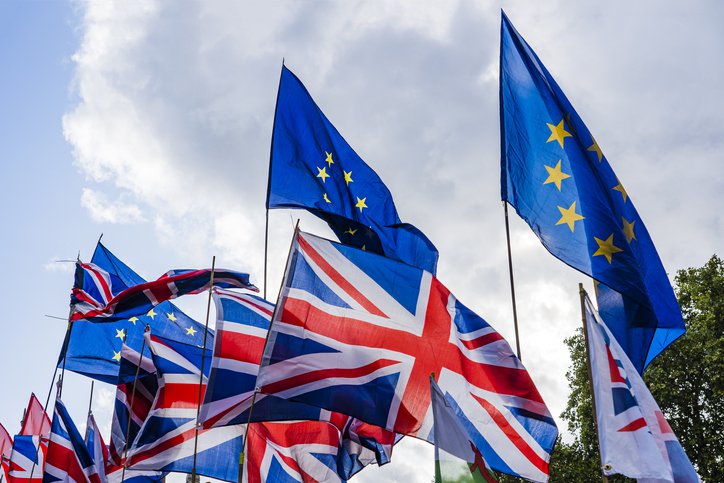
By Q Radio News.
Northern Ireland’s economy is expected to contract by around 11% in 2020 due to the impact of the coronavirus pandemic but then return to positive annual growth of about 7% in 2021, according to new forecasts from Danske Bank.
The Bank has revised its forecasts downwards from its previous projection of a 7.5% fall in economic output this year.
The Bank says its updated forecasts reflect the extent of the decline in economic activity brought about by the lockdown restrictions, as signalled by the latest economic data.
In its latest Northern Ireland Quarterly Sectoral Forecasts report, Danske Bank said the key factors underpinning the fall in output in the first half of 2020 included the temporary closure of firms due to Covid-19 restrictions on non-essential businesses, a sharp fall in discretionary consumer spending and a drop in average weekly hours worked in Northern Ireland.
Danske Bank believes the economy will return to growth from the third quarter of this year onwards as government policy initiatives continue to provide support to businesses and employees and loose monetary policy helps to provide a platform for growth.
However, consumers and businesses are expected to behave more cautiously than they did prior to the pandemic, limiting the pace of the recovery in consumer spending and business investment.
Danske Bank Chief Economist Conor Lambe said: “The Northern Ireland economy is expected to experience a significant contraction in 2020 due to the coronavirus pandemic.

Conor Lambe
"The latest data shows that economic output fell in the first quarter of the year, but the fall in the second quarter is likely to be substantially larger due to the imposition of the lockdown restrictions and the temporary closure of many businesses.
“Given the ongoing easing of the restrictions, the economy should return to growth from the third quarter of this year but the recovery is expected to be a gradual one.
"And despite our relatively strong annual growth forecast for next year, economic output is still expected to be around 3-4% below its pre-coronavirus level in the final quarter of 2021.”
In 2020 Danske Bank expects all sectors, except public administration and defence, to experience a fall in output.
Those most impacted by the lockdown and the ongoing social distancing measures — including accommodation & food services and arts, entertainment & recreation — are likely to experience the greatest falls in economic activity this year, of around 38% and 25% respectively.
The wholesale & retail trade sector has seen a sharp drop in activity, and the Bank is now forecasting that it will experience an annual fall in output of about 17% in 2020 as the necessary social distancing rules are likely to limit activity in this sector compared to pre-coronavirus trends.
Transportation & storage, construction and manufacturing are also expected to experience steep declines in output, contracting at a sharper rate than the overall economy.
Further disruption related to the end of the Brexit transition period is also likely to pose challenges for manufacturing and transportation businesses at the start of next year.

Sectors where workers are able to work from home such as professional, scientific & technical services and information & communication are expected to prove more resilient to the current recession, but are still likely to experience falls in output of 5.6% and 7.6% respectively in 2020.
Danske Bank expects the government support measures to be relatively successful at limiting the overall number of job losses, but still thinks that the labour market will weaken further over the remainder of 2020.
The Bank is forecasting that the number of employee jobs will decline by around 2.8% in 2020 and the annual average unemployment rate will increase to around 5.5%, but with the quarterly rate rising above this later in the year.
The Bank then expects to see some recovery in the labour market in 2021 with the number of jobs rising by 0.4% and the annual unemployment rate falling slightly to 5.3%.
At a sector level, human health & social work and public administration & defence are both expected to experience increases in employment of 0.6% in 2020. These sectors are likely to see increased demand in the short-term to provide additional public services during the pandemic.
Accommodation & food services and arts, entertainment & recreation are forecast to experience sharp contractions in employment of 9.8% and 8.1%, followed by modest growth in 2021.
Similarly, both construction (-4.6%) and manufacturing (-5.7%) are also set to experience job losses this year.
The information & communication (-1.1%), professional, scientific & technical services -1.9%) and administration & support services (-1.7%) sectors are expected to see job losses in 2020, but at a more modest pace than the average for the overall economy.
The report says the coronavirus pandemic remains the most significant risk facing the economy and there are a number of downside events that could materialise in the second half of 2020 or into 2021.
A second wave of coronavirus infections could result in renewed lockdown restrictions, perhaps at a local level, with businesses once again being asked to temporarily close.
Or the extent to which government policy measures succeed in limiting the number of job losses and business insolvencies could be smaller than assumed, leading to a slower recovery to pre-coronavirus output levels.
Brexit also remains a key issue for local businesses and there is still a lack of clarity on how the Protocol on Ireland and Northern Ireland will be implemented once the transition period ends.
Danske Bank’s forecasts assume that the UK and the EU are able to conclude a free trade agreement by the end of this year but that some trade frictions, including on the movement of goods between Great Britain and Northern Ireland, are introduced from the beginning of 2021.
However, if the UK and the EU are not able to reach an agreement, this would likely slow the pace of the economic recovery and could also lead to economic output in the UK being lower over the medium and longer-term.


 More than 300 arrested for suspected stalking in Northern Ireland in two years
More than 300 arrested for suspected stalking in Northern Ireland in two years
 Three people in hospital following road accident near Ballygawley
Three people in hospital following road accident near Ballygawley
 Number of alcohol-specific deaths at record high
Number of alcohol-specific deaths at record high
 No prosecutions over allegations of false evidence at Bloody Sunday Inquiry
No prosecutions over allegations of false evidence at Bloody Sunday Inquiry
 Calls for State apology for Stardust families after unlawful killing verdicts
Calls for State apology for Stardust families after unlawful killing verdicts